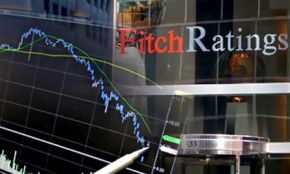Analytics, Economics, Financial Services, Investments, Latvia
International Internet Magazine. Baltic States news & analytics
Thursday, 29.01.2026, 03:42
Fitch affirms Latvia at 'A-'
 Print version
Print version |
|---|
The issue ratings on Latvia's senior unsecured foreign and local currency bonds have also been affirmed at 'A-'.
The country ceiling has been affirmed at 'AAA' and the Short-term foreign currency IDR at 'F1'.
Latvia's ratings are supported by the government's favourable fiscal finances, as well as the institutional strengths and policy framework that come with eurozone membership.
The ratings are constrained by the country's weaker external finances and lower per capita income than 'A' rated peers.
Latvia's economy grew 2.7% in 2015, boosted by a strong domestic sector, despite a double digit contraction in net exports due to weaker external demand.
For 2016, Fitch forecasts a modest slowdown in growth to 2.5% stemming from weaker investment growth and a slow recovery in net exports.
Weak demand from important trading partners (e.g Russia and the other Baltic countries) will keep the net export contribution to GDP negative for another year, albeit at a lesser degree, while gross fixed capital formation will slow due to the start of a new EU funding cycle, according to Fitch.
Growth in 2016 will primarily be driven by household consumption, supported by solid real wage growth and rising employment. Latvia's medium-term potential growth is estimated by the authorities at around 3%. Achieving this growth rate will aid the economy's gradual convergence towards the 'A' median income level.
However, structural rigidities constrain the economy's potential, as evidenced by the high labor tax burden contributing to structural unemployment, and the presence of a large grey economy. There is also a moderate risk that challenges to economic competiveness could arise, should the current trend of strong wage growth above labor productivity continue, Fitch points out.








 «The Baltic Course» Is Sold and Stays in Business!
«The Baltic Course» Is Sold and Stays in Business!

